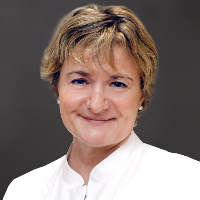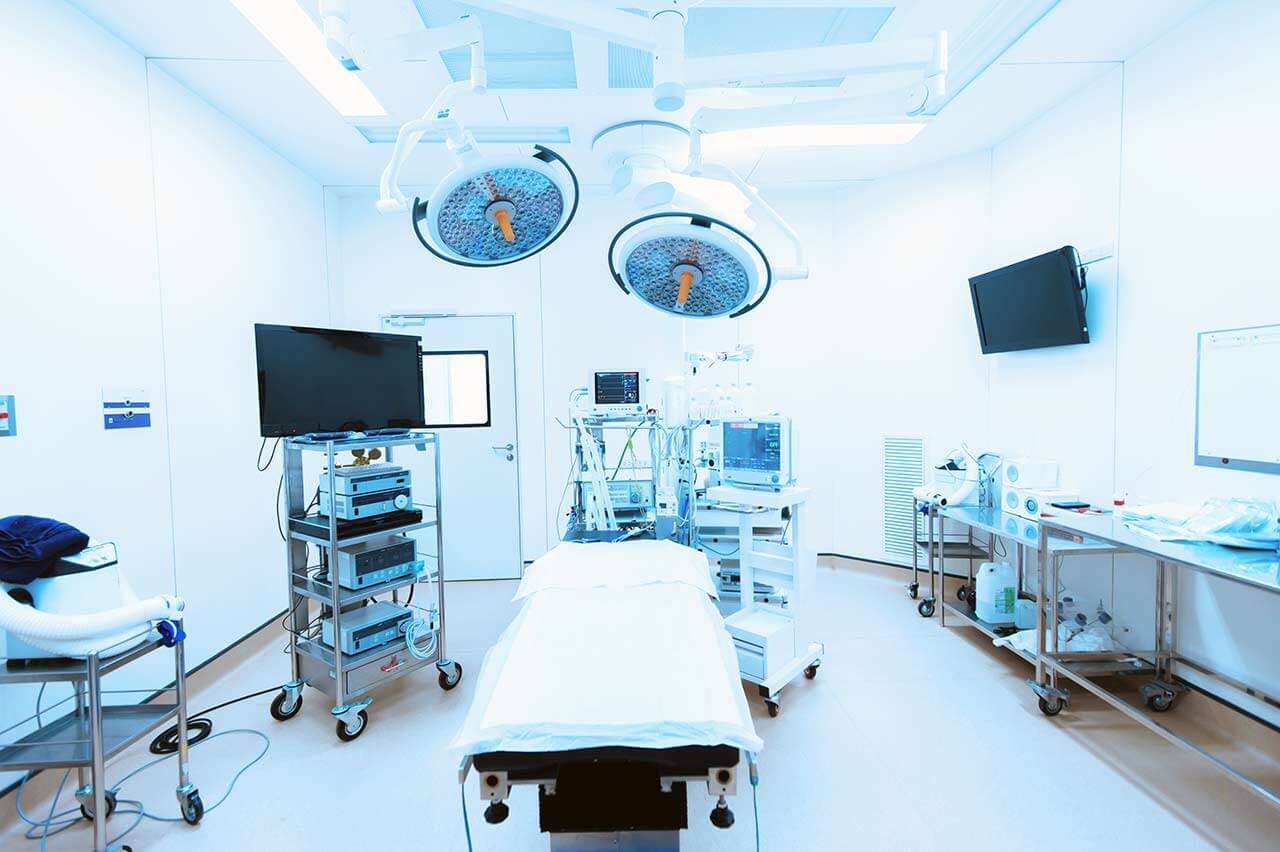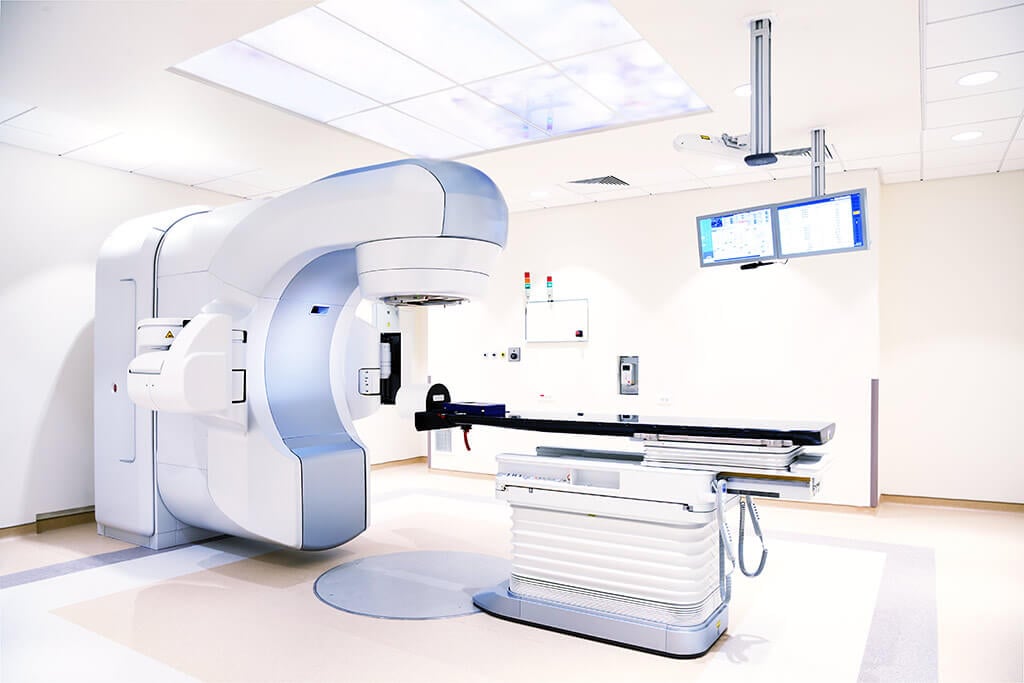
The program includes:
- Initial presentation in the clinic
- clinical history taking
- review of medical records
- physical examination
- laboratory tests:
- complete blood count
- biochemical blood analysis
- inflammation indicators (CRP, ESR)
- high-resolution computed tomography (HRCT)
- pulmonary function test
- blood gas analysis
- biopsy with histological and microbiological examination
- nursing services
- development of individual treatment plan
Required documents
- Medical records
- X-ray examination, MRI/CT scan (if available)
- Pleural biopsy (if available)
Service
You may also book:
 BookingHealth Price from:
BookingHealth Price from:
About the department
The Department of Pulmonology at the Catholic Clinic Koblenz-Montabaur offers the widest possible options for the diagnostics and treatment of benign and malignant diseases of the lungs, respiratory tract, and pleural cavities. The department has a specialized center for treating patients with lung cancer that is certified by the German Cancer Society (DKG). A lung cancer treatment regimen is developed for each patient on an individual basis within the interdisciplinary tumor board. The medical facility has unique clinical experience in providing medical care to patients with rare pulmonary diseases. The department's patients are diagnosed in modern diagnostic rooms, including the Pulmonary Function Laboratory, in which more than 10,000 examinations are carried out annually, ultrasound diagnostic rooms, etc. The department's team of pulmonologists cooperates closely with specialists in thoracic surgery and interventional radiology. The department has 50 beds for patient hospitalization. More than 2,300 inpatients are treated annually in the department, and about 1,500 patients receive outpatient care. The department is headed by Dr. med. Jutta Kappes.
The department admits patients with all lung and respiratory diseases, including lung cancer, bronchial asthma, chronic obstructive pulmonary disease, pulmonary emphysema, pneumothorax, interstitial lung diseases, sarcoidosis, cystic fibrosis, pneumonia, tuberculosis, and other pathologies. The doctors at the medical facility also achieve successful results in the treatment of rare pulmonary diseases. Upon admission to the department, a patient will have to undergo comprehensive diagnostics, which may include laboratory tests, instrumental examinations (X-ray, fluorography, or ultrasound scanning), imaging tests (CT and MRI), pulmonary function tests (body plethysmography, spirometry, or lung diffusion capacity measurement), and endoscopic diagnostic procedures (bronchoscopy, endobronchial sonography, or bronchoalveolar lavage). Based on the diagnostic data obtained, an optimal treatment regimen is developed, taking into account the patient's individual needs and wishes. Whenever possible, the department's specialists strive to use only conservative treatment with pills, infusion therapy, injections, physiotherapy procedures, etc.
The department is proud of its advanced endoscopic rooms, where patients are provided not only with diagnostic services but also effective therapeutic procedures that can often replace traumatic surgical interventions. For example, the department offers an innovative endoscopic treatment method for severe forms of emphysema and chronic obstructive pulmonary disease called endobronchial valve implantation. Patients with these pathologies suffer from shortness of breath, accompanied by severe difficulty breathing. The implantation of endobronchial valves allows for the elimination of the accumulation of excess air in the dilated alveoli, thereby helping to relieve shortness of breath and facilitate breathing. The essence of the procedure is the implantation of special valves in the lobe of the lung most affected by the pathological process. The therapeutic effect is achieved due to the fact that when exhaling, the implanted valves open, thereby ensuring the release of excess air from the alveoli of the affected lobe of the lung, and when inhaling, they close, preventing the flow of air to the pathologically altered areas of the lung. As a result, lung volume is reduced, making it easier for the patient to breathe. This endoscopic procedure was approved for use in clinical practice in 2018. It is considered innovative and is available only in advanced medical centers. The department also performs endobronchial coil implantation. The principle of operation of this method is identical to that of endobronchial valves, but this variant of endoscopic lung volume reduction is the most advanced.
In the field of endoscopic treatment, the department also widely uses argon plasma coagulation. This technique allows doctors to eliminate pulmonary hemorrhage, small neoplasms, pulmonary fibrosis, and other pathological changes in lung tissues. The basis of argon plasma coagulation is the action of a radio wave enhanced by argon (an inert gas). Due to the properties of argon, a high-frequency current can enter tissues without direct contact with them, as a result of which a so-called argon plasma torch is formed between the electrode and the tissue. With the help of a thin loop, the affected tissue is heated and excised. The main advantage of this treatment method is the elimination of the need to excise the tissue using surgical techniques. In addition, during argon plasma coagulation, a doctor has the ability to control the depth of plasma penetration so that healthy adjacent tissues can remain intact. The therapeutic procedure is therefore not only highly effective but also safe for the patient.
The department's medical team cooperates closely with thoracic surgeons, interventional radiologists, cardiologists, oncologists, radiation therapists, and other specialists. Thanks to the coordinated work of various doctors from related disciplines, the patient is guaranteed excellent medical care focused on long-term results. At the same time, the department's doctors always strive to surround the patient with care, show understanding and a humane attitude towards their health problem, and provide moral support during the entire therapeutic process.
The department's main clinical activities include:
- Diagnostic services
- Laboratory tests
- Instrumental examinations
- X-ray scans
- Fluorography
- Ultrasound scans
- Imaging tests
- Computed tomography
- Magnetic resonance imaging
- Pulmonary function tests
- Body plethysmography
- Spirometry
- Lung diffusion capacity measurement
- Spiroergometry
- Determination of the degree of lung compliance
- Assessment of the respiratory muscle strength
- Blood gas analysis during exercise and at rest
- Non-specific and specific provocation tests
- Rhinomanometry
- Endoscopic examinations
- Flexible and rigid bronchoscopy
- Transesophageal sonography
- Endobronchial sonography
- Thoracoscopy
- Bronchoalveolar lavage for diagnostic purposes
- Pleural puncture for diagnostic purposes
- Transbronchial lung cryobiopsy
- Therapeutic services
- Drug therapy with pills, infusion therapy, and injections
- Special physiotherapy for patients with respiratory diseases
- Endoscopic therapeutic procedures
- Endobronchial valve implantation
- Endobronchial coil implantation
- Argon plasma coagulation
- Thoracoscopic talc powder spraying
- Bronchoalveolar lavage for therapeutic purposes
- Pleural puncture for therapeutic purposes
- Other medical services
Curriculum vitae
Higher Education and Professional Career
- 1985 - 1992 Medical studies, Heidelberg University; one-year practice at the Hospital Mannheim and Wayne State University in Detroit, Michigan, USA.
- 1992 - 1999 Assistant Physician, Department of Internal Medicine at the Hospital Weinheim.
- 1996 Thesis defense at Heidelberg University. Subject: "Electron microscopy of the myocardium".
- 1999 Board certification in Internal Medicine.
- 04.1999 - 11.1999 Assistant Physician, Department of Endocrinology and Metabolic Disorders, University Hospital Heidelberg.
- 2000 Theoretical foundations of the specialty in Emergency Medical Care.
- 12.1999 - 06.2003 Assistant Physician, Department of Pulmonology, Pulmonary Clinic Heidelberg.
- 07.2003 Assistant Physician, Department of Oncology, Pulmonary Clinic Heidelberg.
- 2004 - 2007 Senior Physician, Department of Oncology, Pulmonary Clinic Heidelberg.
- 2007 Specialization in Pulmonology.
- 01.2007 - 02.2019 Senior Physician, Department of Pulmonology and Respiratory Medicine, Pulmonary Clinic Heidelberg.
- 01.2007 - 02.2019 Managing Senior Physician, Interdisciplinary Outpatient Clinic, Pulmonary Clinic Heidelberg.
- 2009 - 2016 Coordinator of the Lung Cancer Center at the National Center for Tumor Diseases (NCT) Heidelberg, Pulmonary Clinic Heidelberg.
- 2012 Additional qualification as a specialist in the treatment of lung cancer of the network of Lung Cancer Centers certified by the German Cancer Society (DKG) and collaborating professional societies.
- 2015 Member of the Lung Cancer Committee of the German Cancer Society (DKG).
- 2017 - 2018 Head of the Lung Cancer Center at the National Cancer Center (NCT) Heidelberg, Pulmonary Clinic Heidelberg.
- Since 03.2019 Head Physician of the Department of Pulmonology at the Catholic Clinic Koblenz-Montabaur.
Memberships in Professional Societies
- German Respiratory Society (DGP).
- Federal Association of Pulmonologists (BDP).
Photo of the doctor: (c) Katholisches Klinikum Koblenz - Montabaur
About hospital
The Catholic Clinic Koblenz-Montabaur is a modern medical facility with an excellent reputation in Germany and abroad. The medical center is an academic clinic of the University Hospital Mainz, which gives patients the opportunity to take advantage of scientific advances and innovative treatments. The clinic has the widest possibilities for providing effective medical care to patients with both common and especially complex and rare pathologies. In December 2017, the clinic was certified in accordance with DIN EN ISO 9001:2015 standards, and in 2020, it was successfully recertified, which is a confirmation of the high quality of medical service. The clinic has 20 departments with 17 highly specialized centers integrated into them. The bed fund of the medical facility includes 657 beds. More than 32,000 inpatients and about 133,000 outpatients receive medical care here annually.
Many medical specialties are available at the clinic, including general and abdominal surgery, bariatric surgery, vascular surgery, thoracic surgery, cardiology, pulmonology, gynecology, urology, neurology, orthopedics, traumatology, radiology, nuclear medicine, and others. Each of the medical specialties is represented by an experienced team of doctors and nursing staff who do their best to restore the patient's health. Doctors of various medical fields work in close cooperation, which allows for an interdisciplinary approach to solving health problems.
The pride of the clinic is the advanced technical base, which plays an important role in accurate examinations and effective treatment. For example, the operating rooms at the clinic are equipped in accordance with the current requirements of European medicine, due to which most surgical interventions are performed using sparing techniques, including laser surgery, video-assisted thoracoscopic surgery, arthroscopy, endovascular and hybrid surgical techniques, etc.
Despite the clinic's high-tech infrastructure, there is an atmosphere of understanding, sympathy, and respect for the patient. The medical team shows a humane attitude towards patients and takes care of their comfort throughout the entire period of treatment. Doctors devote enough time to personal communication with patients, which makes it possible to take into account their individual needs and wishes during the therapeutic process.
Photo: (с) depositphotos
Accommodation in hospital
Patients rooms
The patients of the Catholic Clinic Koblenz-Montabaur live in comfortable single and double rooms with light colors and modern design. Each patient room has an ensuite bathroom with a shower and a toilet. The furnishings of a standard patient room include an automatically adjustable bed, a bedside table, a wardrobe, a table and chairs for receiving visitors, and a TV. The telephone is provided for a fee. Wi-Fi is available upon request.
The clinic also offers enhanced comfort rooms corresponding to the level of a five-star hotel. These patient rooms are more spacious and have a sophisticated design. The bathroom of the enhanced comfort rooms has a set of toiletries, changeable towels, and a bathrobe.
Meals and Menus
The patient and the accompanying person can choose meals from three menus daily. If, for some reason, you do not eat all the foods, you will be offered an individual menu. Please inform the nursing staff of your dietary preferences prior to treatment.
Patients living in enhanced comfort rooms are additionally offered free soft drinks, coffee, tea, desserts, and fresh fruits.
Further details
Standard rooms include:
Religion
A Catholic liturgy is held every Sunday morning in the church at the clinic. The divine liturgy is also broadcast on the clinic's internal TV channel.
Accompanying person
Your accompanying person may stay with you in your patient room or at the hotel of your choice during the inpatient program.
Hotel
You may stay at the hotel of your choice during the outpatient program. Our managers will support you for selecting the best option.





